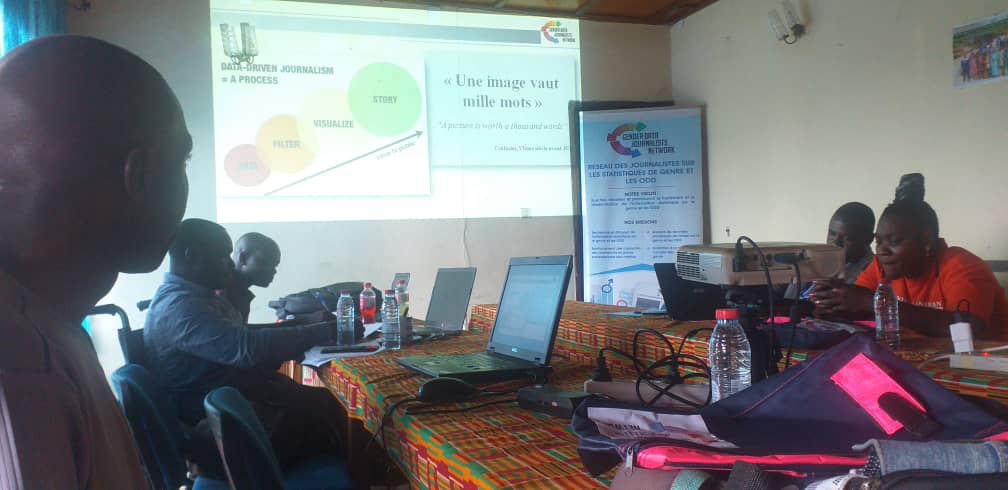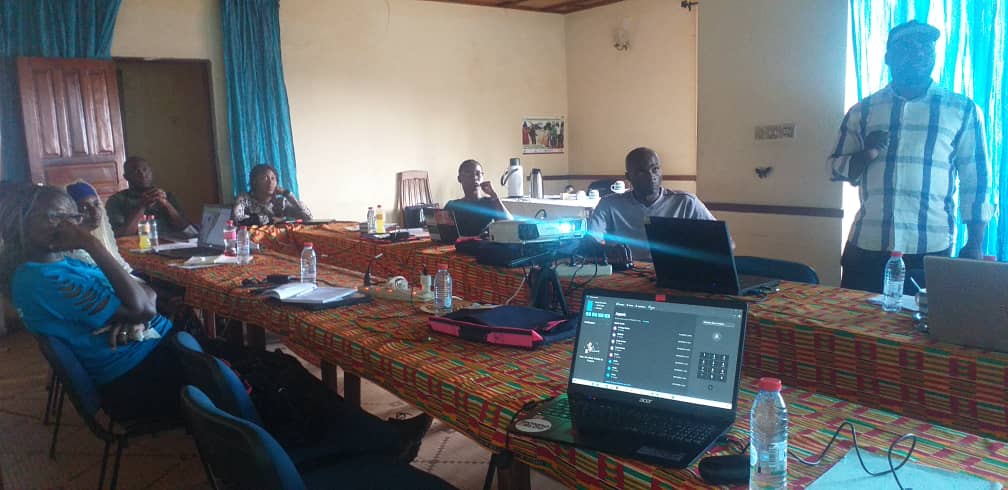In a bid to equip student Journalists and Journalism professionals on Gender and Initiation to Data Journalism, the Gender Data Journalist Network (GDJN) convened a 2day symposium in Yaoundé.
Emmanuel Batake, Founder of GDJN told participants that Data Journalism is not Magic. He focused on the concept of Gender through an interactive but engaging drill. Journalism practitioners were drilled on new technics of information treatment.
Using the Gender approach with regard to statistical Data to Batake entails a collaborative approach. The new media has brought about an explosion in the work life of the 21st Century journalist he posits. The use of Google Documents and Excel sheets was also at the centre of discussions.
Nadege Christella Bowa said, “Integrating the search for truth in our reporting is more fundamental for a journalist because a report is basically seen, heard, lived and felt”. She reminded journalists that storytelling draws its impetus from data journalism” little wonder, there is a need for collaborative work in information sharing using gender and data approaches
The Gender of Data is a journalism process and thought pattern in that Data Journalism is a progression at raising value from data, filtering data, visualising data and finally telling the story as it implies. Data is important to Gender-sensitive reporting in that, a well-documented story backed by facts and figures can change discussions and shift paradigms in unexpected ways.
Beatrice Kaze cautioned the trainees saying, “Be the mover and change perspectives for Fake News appears in the form of cycles, the reason why it remains good practice to balance one’s reporting with both disaggregate and aggregate data”.
The initiative is expected to reinforce dialogue on key issues like gender sensitivity and concepts like gender blindness, gender bias, gender statistics and gender equity to mention a few.
Going by Tchonko Becky Bissong, the National Coordinator of the Association of Female Journalists in Cameroon (AFMEC), more than a duty, it is a call for women and men in the media landscape to investigate, tell stories, document them and why not spark debates within boundary lines.
She remarked that practising Journalists and trainees in the execution of their work encounter loopholes such as access to data and use of gender statistics, the uninterested nature of statisticians, cost linked to the production of storytelling and investigative reporting plus the poor comprehension of data by media production teams. To her, the above must not stand as a demotivating factor if they love reporting facts.
Carine Oum, Audiovisual Expert enjoined the trainees to strategize on how to infuse data and vulgarise statistics on gender data, accompany the production of women interviews via data use and the putting in use of data for journalists.
She further used the platform to shun the inappropriate representation of data in Cameroonian media houses from a general perspective, the reason why module 6 laid emphasis on initiation and technics of data analyses and the visualisation of data.
Fotso Fokam, Factchecker and Blogger enlightened the journalists on tools and technics of information verification, with a focus on the need for the reduction of Fake News through knowing the disadvantages of Misinformation, Mal-information and Disinformation.
He used data verification tools like YANDEX, TINEYE, REDDIT, INVID, Jeffrey’s image metadata viewer, and Reverse Search Image while dishing out practical lessons on how to verify a video. The discussions sparked intelligent debates from both ends.
There was worthwhile practice on good graphic choices and the decision to use data representation like bar charts, histograms, pictograms, the genealogical tree or data wrapper. Data journalism formats do include; visual and storytelling articles plus podcasts amongst others. Two more sessions intended to draw more cohorts buy the vision are billed for November in Yaoundé and December in Douala.
By Honorine Cheng
Content Creator/Data Journalist


1 comment
Can you be more specific about the content of your article? After reading it, I still have some doubts. Hope you can help me.